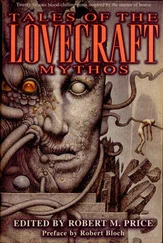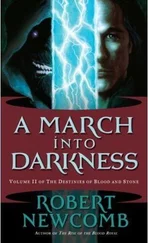Robert Pirsig - Lila. An Inquiry Into Morals
Здесь есть возможность читать онлайн «Robert Pirsig - Lila. An Inquiry Into Morals» весь текст электронной книги совершенно бесплатно (целиком полную версию без сокращений). В некоторых случаях можно слушать аудио, скачать через торрент в формате fb2 и присутствует краткое содержание. Жанр: Современная проза, на английском языке. Описание произведения, (предисловие) а так же отзывы посетителей доступны на портале библиотеки ЛибКат.
- Название:Lila. An Inquiry Into Morals
- Автор:
- Жанр:
- Год:неизвестен
- ISBN:нет данных
- Рейтинг книги:3 / 5. Голосов: 1
-
Избранное:Добавить в избранное
- Отзывы:
-
Ваша оценка:
- 60
- 1
- 2
- 3
- 4
- 5
Lila. An Inquiry Into Morals: краткое содержание, описание и аннотация
Предлагаем к чтению аннотацию, описание, краткое содержание или предисловие (зависит от того, что написал сам автор книги «Lila. An Inquiry Into Morals»). Если вы не нашли необходимую информацию о книге — напишите в комментариях, мы постараемся отыскать её.
Lila. An Inquiry Into Morals — читать онлайн бесплатно полную книгу (весь текст) целиком
Ниже представлен текст книги, разбитый по страницам. Система сохранения места последней прочитанной страницы, позволяет с удобством читать онлайн бесплатно книгу «Lila. An Inquiry Into Morals», без необходимости каждый раз заново искать на чём Вы остановились. Поставьте закладку, и сможете в любой момент перейти на страницу, на которой закончили чтение.
Интервал:
Закладка:
Sometimes you could see little fragments of reflections of what was wrong but they were just fragments and you couldn’t put them together. He remembered seeing The Glass Menagerie , by Tennessee Williams, in which one edge of the stage had an arrow-shaped neon sign flashing on and off, on and off, and beneath the arrow was the word, PARADISE, also flashing on and off. Paradise, it kept saying, is right where this arrow points:
PARADISE -→ PARADISE -→ PARADISE -→
But the Paradise was always somewhere pointed to, always somewhere else. Paradise was never here. Paradise was always at the end of some intellectual, technological ride, but you knew that when you got there paradise wouldn’t be there either. You would just see another sign saying:
PARADISE -→ PARADISE -→ PARADISE -→
and pointing another direction to go.
On a theater marquee, the title Rebel Without a Cause caught his attention in the same way. It pointed to the same low-quality thing that he saw everywhere but which couldn’t be put into words.
You had to be a rebel without a cause. The intellectuals had preempted all the causes. Causes were to the twentieth-century intellectuals as manners had been to Victorians. There was no way you could beat a Victorian on manners and there was no way you could beat a twentieth-century intellectual on causes. They had everything figured out. That was part of the problem. That was what was being rebelled against. All that neat scientific knowledge that was supposed to guide the world.
Phædrus had no cause that he could explain to anybody. His cause was the Quality of his life, which could not be framed in the objective language of the intellectuals and therefore in their eyes was not a cause at all. He knew that intellectually contrived technological devices had increased in number and complexity, but he didn’t think the ability to enjoy these devices had increased in proportion. He didn’t think you could say with certainty that people are any happier than they were during the Victorian era. This pursuit of happiness seemed to have become like the pursuit of some scientifically created, mechanical rabbit that moves ahead at whatever speed it is pursued. If you ever did catch it for a few moments it had a peculiar synthetic, technological taste that made the whole pursuit seem senseless.
Everyone seemed to be guided by an objective, scientific view of life that told each person that his essential self is his evolved material body. Ideas and societies are a component of brains, not the other way around. No two brains can merge physically, and therefore no two people can ever really communicate except in the mode of ship’s radio operators sending messages back and forth in the night. A scientific, intellectual culture had become a culture of millions of isolated people living and dying in little cells of psychic solitary confinement, unable to talk to one another, really, and unable to judge one another because scientifically speaking it is impossible to do so. Each individual in his cell of isolation was told that no matter how hard he tried, no matter how hard he worked, his whole life is that of an animal that lives and dies like any other animal. He could invent moral goals for himself, but they are just artificial inventions. Scientifically speaking he has no goals.
Sometime after the twenties a secret loneliness, so penetrating and so encompassing that we are only beginning to realize the extent of it, descended upon the land. This scientific, psychiatric isolation and futility had become a far worse prison of the spirit than the old Victorian virtue ever was. That streetcar ride with Lila so long ago. That was the feeling. There was no way he could ever get to Lila or understand her and no way she could ever understand him because all this intellect and its relationships and products and contrivances intervened. They had lost some of their realness. They were living in some kind of movie projected by this intellectual, electromechanical machine that had been created for their happiness, saying
PARADISE -→ PARADISE -→ PARADISE -→
but which had inadvertently shut them out from direct experience of life itself — and from each other.
23
It seemed to Lila that all this was some kind of a dream she was in. Where did it start? She couldn’t remember. Her mind always went faster and faster like this when she got scared. Why did he have to take the pills out of her purse? The pills could have made it not so scary. He must have thought those pills were dope or something. That’s why he took them. She could tell when she needed them by how scary everything got. Now she needed them bad.
She should have got her suitcase this afternoon like she said she was going to. Then she wouldn’t have to go back to the boat like this. Now it was dark.
That damn waiter. He could have given her some money to help her out. Then she could have taken a cab. Now she didn’t have anything. He was acting like she had lied to him. But she hadn’t lied. And he knew she hadn’t lied. He could tell. But that didn’t matter. He had to make it look like she had done something wrong even when he knew she hadn’t done anything wrong.
It was so cold now. The wind went right through this sweater. The streets were so dirty here. Everything was dirty here. Everything was worn out and cold.
It was starting to rain.
She didn’t even know if this was the right way. It seemed like she must be getting close to the river.
When she looked down a street she could see a highway where cars were going fast. But the park wasn’t where it was supposed to be. Maybe her directions got twisted and she was walking the wrong way. The rain was shining in their headlights. She remembered when she and the Captain had walked from the boat there was a park.
Maybe she could just take a taxi and not pay. She saw one coming with its light off. She thought about waving to it but she didn’t do it. In the old days she could have done it. And spit in his face when he tried to collect. But she was so tired now. She didn’t want to fight.
Maybe she should just ask somebody for some money. No, that wouldn’t work. They wouldn’t give it. Not here. It was dangerous going up to people in this city without any reason. They could do anything.
She could go to the cops or go to a shelter somewhere… But they’d find out about her. In this town once they know you’ve got a record you don’t want to see them again.
She didn’t want to walk along the river to get to the boat. She didn’t think she’d like it down there. She’d just stay up until she saw where the marina might be. Then she’d cross down.
That man who looked at her through the restaurant window. That was bad. Ten or fifteen years ago he would have been in that door so fast they couldn’t stop him. Now he just walked away. She remembered what Allie used to say: You never change, honey, but they do. She used to say, When you don’t need 'em they’re all over the place. But when you want one you never find him.
She wondered where Allie was now. She must be about fifty by now. She was probably some old bag lady like the ones she saw yesterday. That’s what Lila was going to be. A bag lady. Sitting on a grate somewhere trying to keep warm with all those old clothes on… Like the witch in the store window. With a big nose with a wart on it hanging down over her chin…
She should touch up her hair. She was really looking ratty now. The rain was getting her hair so wet she must be looking like a witch too.
There was supposed to be a big castle with a high green steeple at the top sticking up in the air. That’s what she remembered. When she got to the castle she should turn down to the river and that’s where the boat should be. She remembered that from when they left.
Читать дальшеИнтервал:
Закладка:
Похожие книги на «Lila. An Inquiry Into Morals»
Представляем Вашему вниманию похожие книги на «Lila. An Inquiry Into Morals» списком для выбора. Мы отобрали схожую по названию и смыслу литературу в надежде предоставить читателям больше вариантов отыскать новые, интересные, ещё непрочитанные произведения.
Обсуждение, отзывы о книге «Lila. An Inquiry Into Morals» и просто собственные мнения читателей. Оставьте ваши комментарии, напишите, что Вы думаете о произведении, его смысле или главных героях. Укажите что конкретно понравилось, а что нет, и почему Вы так считаете.











